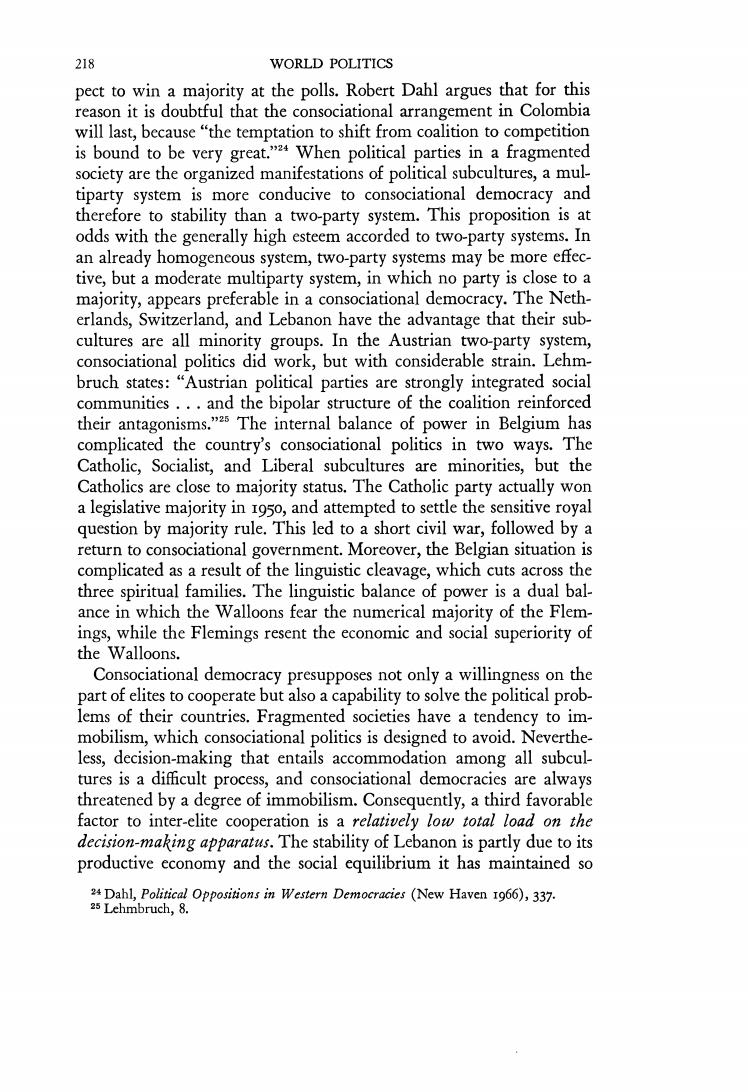正在加载图片...

218 WORLD POLITICS pect to win a majority at the polls.Robert Dahl argues that for this reason it is doubtful that the consociational arrangement in Colombia will last,because "the temptation to shift from coalition to competition is bound to be very great.When political parties in a fragmented society are the organized manifestations of political subcultures,a mul- tiparty system is more conducive to consociational democracy and therefore to stability than a two-party system.This proposition is at odds with the generally high esteem accorded to two-party systems.In an already homogeneous system,two-party systems may be more effec- tive,but a moderate multiparty system,in which no party is close to a majority,appears preferable in a consociational democracy.The Neth- erlands,Switzerland,and Lebanon have the advantage that their sub- cultures are all minority groups.In the Austrian two-party system, consociational politics did work,but with considerable strain.Lehm- bruch states:"Austrian political parties are strongly integrated social communities...and the bipolar structure of the coalition reinforced their antagonisms."2 The internal balance of power in Belgium has complicated the country's consociational politics in two ways.The Catholic,Socialist,and Liberal subcultures are minorities,but the Catholics are close to majority status.The Catholic party actually won a legislative majority in 150,and attempted to settle the sensitive royal question by majority rule.This led to a short civil war,followed by a return to consociational government.Moreover,the Belgian situation is complicated as a result of the linguistic cleavage,which cuts across the three spiritual families.The linguistic balance of power is a dual bal- ance in which the Walloons fear the numerical majority of the Flem- ings,while the Flemings resent the economic and social superiority of the Walloons. Consociational democracy presupposes not only a willingness on the part of elites to cooperate but also a capability to solve the political prob- lems of their countries.Fragmented societies have a tendency to im- mobilism,which consociational politics is designed to avoid.Neverthe- less,decision-making that entails accommodation among all subcul- tures is a difficult process,and consociational democracies are always threatened by a degree of immobilism.Consequently,a third favorable factor to inter-elite cooperation is a relatively low total load on the decision-making apparatus.The stability of Lebanon is partly due to its productive economy and the social equilibrium it has maintained so 24 Dahl,Political Oppositions in Western Democracies (New Haven 1966),337. 25 Lehmbruch,8